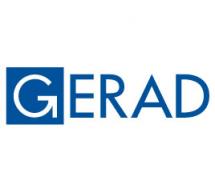
Common knowledge and dynamic games of asymmetric information
Sebastian Engelke – University of Geneva, Suisse
Conditional independence, graphical models and sparsity are key notions for parsimonious models in high dimensions and for learning structural relationships in the data. The theory of multivariate and spatial extremes describes the risk of rare events through asymptotically justified limit models such as max-stable and multivariate Pareto distributions. Statistical modeling in this field has been limited to moderate dimensions so far, owing to complicated likelihoods and a lack of understanding of the underlying probabilistic structures.
We introduce a general theory of conditional independence for multivariate Pareto distributions that allows to define graphical models and sparsity for extremes. New parametric models can be built in a modular way and statistical inference can be simplified to lower-dimensional margins. We define the extremal variogram, a new summary statistics that turns out to be a tree metric and therefore allows to efficiently learn an underlying tree structure through Prim's algorithm. For a popular parametric class of multivariate Pareto distributions we show that, similarly to the Gaussian case, the sparsity pattern of a general graphical model can be easily read of from suitable inverse covariance matrices. This enables the definition of an extremal graphical lasso that enforces sparsity in the dependence structure.
We illustrate the results with an application to flood risk assessment on the Danube river.
-----
Entrée gratuite.
Bienvenue à tous!

